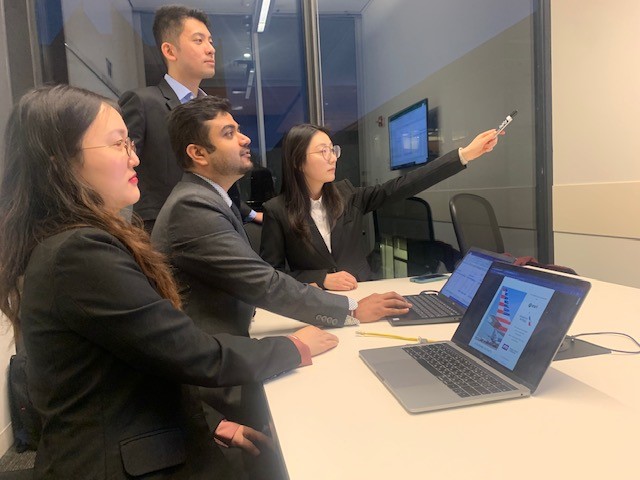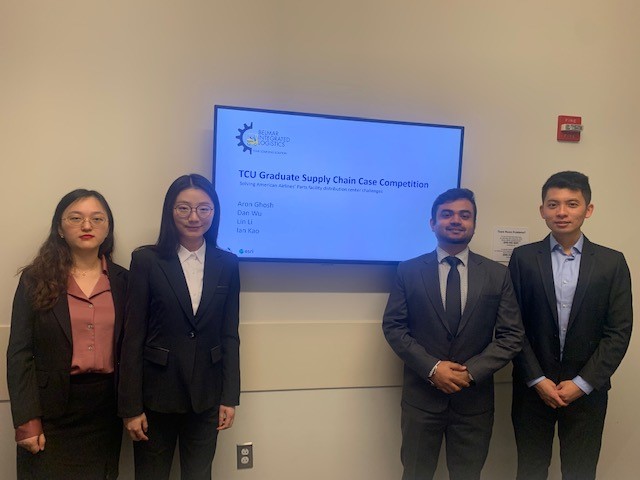Adaptation is Key: 2022 TCU Supply Chain Case Competition

Every February since 2017, Texas Christian University hosts graduate students from supply chain programs across the country for an intense 24-hour competition. Teams are assigned real-world cases from established companies such as Chick-fil-A or BNSF Railway, and each team pitches their solution to a panel of global supply chain leaders. The top four teams win $30,000 in prizes.
This year’s sixth annual competition on February 3-5 was initially planned to return to a fully in-person format after last year’s competition convened virtually due to the pandemic. An unusual and ill-timed Texas snowstorm, however, prompted a last-minute pivot to a hybrid model, with some teams needing to compete remotely. In the case of our Foster team, cancelled flights from SeaTac to Texas meant that MSCM graduate students would be working out of PACCAR Hall.
The TCU Neeley School of Business partnered with American Airlines this year to assign a case requiring an inventory strategy for stocking repair parts for the Boeing 787 fleet at airports across the company’s U.S. network. Team members Ian Kao, Dan Wu, Lin Li, and Aron Ghosh didn’t miss a beat and adapted to the circumstances admirably, including starting their work together at 4:10 am PST. Although our team didn’t make into the finals this year, they got valuable feedback and deepened their understanding of supply chain concepts. Here are some of the team’s thoughts in their own words.

Preparing to Compete
We researched the supply chain of American Airlines in advance to get familiar with possible issues. In addition, MSCM alum and former contestant Everett Rebstock shared his past experience with us. This gave us a sense how things would go and what we should keep in mind. – Dan Wu
We had to make some assumptions about the airline industry in order to start developing our calculations and making useful analytical tools. – Lin Li
Presenting a Solution
In solving the problem, we used Esri’s ArcGIS tool. One team member spent time getting familiar with the method of using this tool in advance and applying for the second operator account to improve our efficiency. – Dan Wu
We had limited time with the case, so everyone was focused and working for 18 hours. – Ian Kao
Our courses on Forecasting, Inventory Management, and Logistics really came in handy. – Aron Ghosh
Together we crafted a clear outline for how we would launch our ideas and what data we would leverage. – Lin Li
Outcomes
The most rewarding thing is that we had a chance to work on a real-world case. It was cool to work from actual data from a world-class airline. Even though we didn’t advance, we still enjoyed it! We figured out solutions while navigating uncertainties. It was a priceless experience to work with my three teammates and compete with the best. – Ian Kao
This competition was a precious experience. We competed with 18 excellent supply chain professional teams from the country and learned a lot. Also, applying course material to solve supply chain problems in the real world gave us a deeper understanding of some concepts. – Dan Wu
Read about Foster’s past participation in TCU’s Supply Chain Case Competition: 2019 in partnership with Nike, and 2020 in partnership with Chick-fil-A.
Written by Joe Garvin
Writer & Content Strategist
[email protected]
